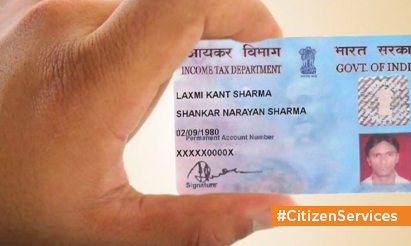Decoding the Validity and Legal Importance of Rs 100 Stamp Paper!
What is a stamp?
A stamp, in a legal and financial context, refers to a small piece of paper typically affixed to documents to indicate payment of a fee or tax. These fees, known as stamp duties, are levied by governments on various legal documents, such as contracts, deeds, licenses, and agreements. The presence of a stamp signifies that the necessary duty has been paid, making the document legally valid and enforceable. Stamps often bear intricate designs or markings, serving both practical and aesthetic purposes. They play a crucial role in validating the authenticity and legality of official transactions and agreements.
What is a Rs 100 Stamp Paper?
A Rs 100 stamp paper is a legal document that is used to authenticate certain transactions. It is a physical piece of paper that has been embossed with a revenue stamp, which is a government-issued stamp that indicates that the paper has been paid for.
Validity of Rs 100 Stamp Paper
The Rs 100 stamp paper is valid for a period of 3 years from the date of purchase. After the expiry of the validity period, the stamp paper becomes invalid and cannot be used for any legal purposes.
Legal Importance of Rs 100 Stamp Paper
The legal importance of the Rs 100 stamp paper depends on the type of transaction that it is used for. For example, the stamp paper may be required to authenticate a contract, a lease agreement, or a power of attorney related to Commercial properties and residential properties. In some cases, the stamp paper may also be required to be registered with the government.
Governing Law: Indian Stamp Act, 1899
The use of the Rs 100 stamp paper is governed by the Indian Stamp Act, 1899. The Act specifies the types of transactions that require the use of a stamp paper and the amount of stamp duty that is payable.
Common Transactions Requiring Rs 100 Stamp Paper
The use of the Rs 100 stamp paper is a common practice in India. It is a reliable way to authenticate certain transactions and to ensure that they are legally binding.
Here are some of the transactions that require the use of a Rs 100 stamp paper:
- Contracts: A contract is a legally binding agreement between two or more parties. The stamp paper is used to authenticate the contract and to ensure that it is legally valid.
- Lease agreements: A lease agreement is a contract between a landlord and a tenant that sets out the terms of the lease. The stamp paper is used to authenticate the lease agreement and to ensure that it is legally valid.
- Power of attorney: A power of attorney is a document that gives one person the authority to act on behalf of another person. The stamp paper is used to authenticate the power of attorney and to ensure that it is legally valid.
If you are unsure whether or not a Rs 100 stamp paper is required for a particular transaction, you should consult with a lawyer.
Rs 100 Stamp Paper: Main Facts
The Rs 100 stamp paper is a commonly used denomination of stamped paper in India, primarily utilized for legal and financial transactions. Here are some key facts regarding Rs 100 stamp paper:
- Value and Usage: The Rs 100 stamp paper holds a monetary value of 100 Indian Rupees and is frequently employed for executing various legal documents such as affidavits, rental agreements, loan agreements, and sale deeds.
- Legal Validity: When a document is executed on a Rs 100 stamp paper and properly stamped, it is considered legally valid and admissible in courts of law in India.
- Stamp Duty Regulations: The utilization of stamp papers is governed by stamp duty regulations set forth by individual state governments in India. The applicable stamp duty varies depending on the nature and value of the transaction, and it is crucial to adhere to these regulations to ensure legal compliance.
- Purchase and Availability: Rs 100 stamp papers can be purchased from authorized stamp vendors, government treasuries, or designated banks. These stamp papers feature specific security features to prevent counterfeiting and ensure authenticity.
- Validity Period: It’s essential to note that stamped papers, including the Rs 100 denomination, have a validity period typically ranging from six months to one year from the date of purchase. Beyond this period, the stamp paper may lose its legal validity, necessitating the procurement of a fresh one for executing new documents.
Disclaimer: The views expressed above are for informational purposes only based on industry reports and related news stories. PropertyPistol does not guarantee the accuracy, completeness, or reliability of the information and shall not be held responsible for any action taken based on the published information.




